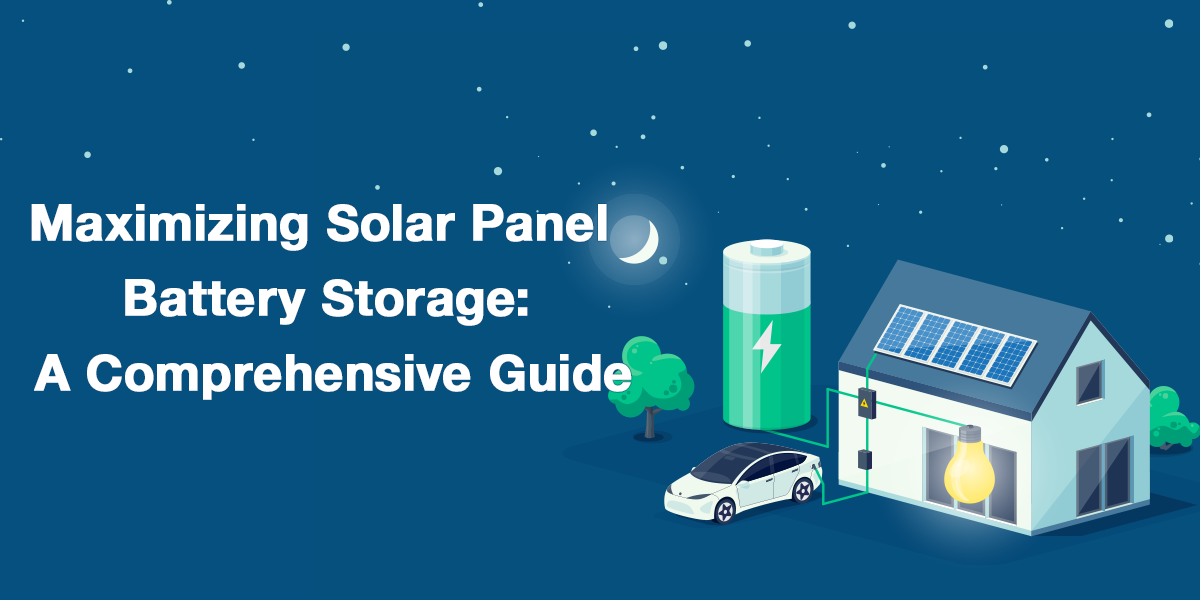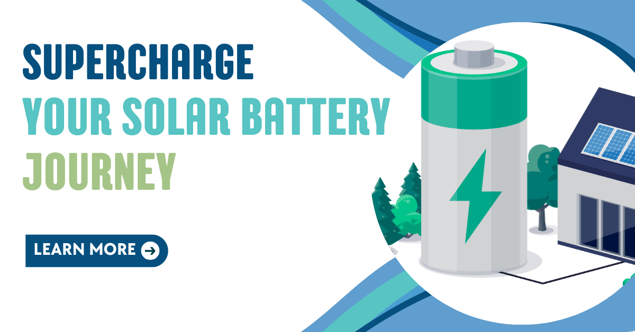Maximizing Solar Panel Battery Storage: A Comprehensive Guide

In recent years, the renewable energy landscape has been experiencing a significant shift, with solar panel battery storage emerging as a pivotal technology for homeowners seeking to enhance the efficiency and sustainability of their energy systems.
As concerns about climate change and rising energy costs intensify, an increasing number of homeowners are turning to solar panel installations coupled with battery storage solutions to harness the power of the sun and create a more resilient energy future. In this comprehensive guide, we will delve into the growing interest in solar panel battery storage and provide homeowners with a detailed roadmap to optimize their solar energy systems through the integration of battery storage solutions.
The Rise of Solar Panel Battery Storage
Solar panel technology has come a long way since its inception, and its adoption has seen a steady rise in the past decade. However, the intermittent nature of solar power generation presents challenges, particularly during periods of low sunlight or at night. This is where solar panel battery storage comes into play, allowing homeowners to store excess energy generated during sunny hours for use during cloudy days or nighttime hours.
The allure of solar panel battery storage lies in its potential to increase energy self-sufficiency and reduce reliance on traditional fossil fuels. As the technology matures and becomes more accessible, homeowners are finding themselves in a prime position to take advantage of this innovative solution. With the ability to store excess energy, homeowners can maintain a consistent power supply, even when the sun isn't shining. This not only reduces the strain on the grid but also contributes to a greener and more sustainable energy ecosystem.
Benefits of Solar Panel Battery Storage
Energy Independence: Solar panel battery storage empowers homeowners to generate, store, and utilize their own renewable energy, reducing dependence on external energy sources and utility companies. This newfound energy independence provides a sense of control over energy consumption and costs.
Cost Savings: By storing excess energy during peak generation hours and using it when electricity prices are higher, homeowners can significantly reduce their energy bills. Additionally, some regions offer incentives, tax credits, or net metering programs that further enhance the financial benefits of solar panel battery storage.
Resilience and Reliability: Solar panel battery storage systems act as a backup power source during outages, ensuring that essential appliances and devices remain functional. This resilience can prove invaluable during emergencies or adverse weather conditions.
Environmental Impact: Embracing solar panel battery storage contributes to a cleaner environment by reducing greenhouse gas emissions and dependence on non-renewable energy sources. This proactive stance aligns with global efforts to combat climate change and promote sustainability.
Long-Term Investment: Solar panel battery storage systems are a long-term investment that can increase the value of a home. Potential buyers are increasingly drawn to properties equipped with renewable energy solutions and battery storage due to the associated cost savings and environmental benefits.
Optimizing Solar Energy Systems with Battery Storage Solutions
1. Assess Energy Consumption and NeedsBefore diving into solar panel battery storage, homeowners should conduct a comprehensive energy assessment to understand their energy consumption patterns and needs. This assessment will serve as a foundation for determining the appropriate size of the solar panel system and battery storage capacity. Factors to consider include average daily energy usage, peak demand times, and future growth in energy needs.
2. Right-sizing Solar Panels and BatteriesSelecting the right size for both solar panels and batteries is crucial to maximizing the benefits of the system.
Oversizing the solar panel system can result in excess energy generation that goes to waste, while undersizing can lead to inadequate energy production. Similarly, choosing the right battery capacity ensures that sufficient energy is stored to meet consumption needs during non-sunny periods.
Consulting with a solar panel installation expert can help homeowners make informed decisions based on their unique requirements.
3. Integrate Smart Energy Management SystemsIncorporating smart energy management systems enhances the efficiency of solar panel battery storage. These systems use advanced algorithms to optimize energy consumption, storage, and distribution. They can prioritize powering essential appliances during outages or direct excess energy to charge electric vehicles. Integrating such systems empowers homeowners to make real-time adjustments and maximize energy utilization.
4. Time-of-Use (TOU) and Net Metering StrategiesUnderstanding the utility's time-of-use (TOU) rates and net metering policies can help homeowners devise strategies to maximize savings.
During peak electricity demand periods, TOU rates are higher, making it advantageous to use stored energy from the battery. Net metering allows homeowners to earn credits for excess energy sent back to the grid, which can be used to offset future electricity bills.
5. Regular Maintenance and MonitoringTo ensure the longevity and optimal performance of the solar panel battery storage system, regular maintenance is essential. This includes monitoring battery health, checking for any issues with the solar panels, and keeping the system's software up to date. Many manufacturers provide monitoring apps or platforms that allow homeowners to track energy production, consumption, and battery status in real time.
Solar panel battery storage has ushered in a new era of energy innovation, offering homeowners a tangible opportunity to maximize their solar energy systems and create a more sustainable energy future.
As the interest in renewable energy solutions continues to grow, understanding the benefits of solar panel battery storage and implementing an optimized system becomes increasingly vital.
By assessing energy needs, right-sizing components, integrating smart energy management systems, and staying informed about utility policies, homeowners can harness the full potential of solar panel battery storage and enjoy the numerous advantages it brings. Through these proactive steps, homeowners can contribute to a cleaner environment, reduce energy costs, and enhance their energy independence while building a brighter, more resilient future for themselves and their communities.

